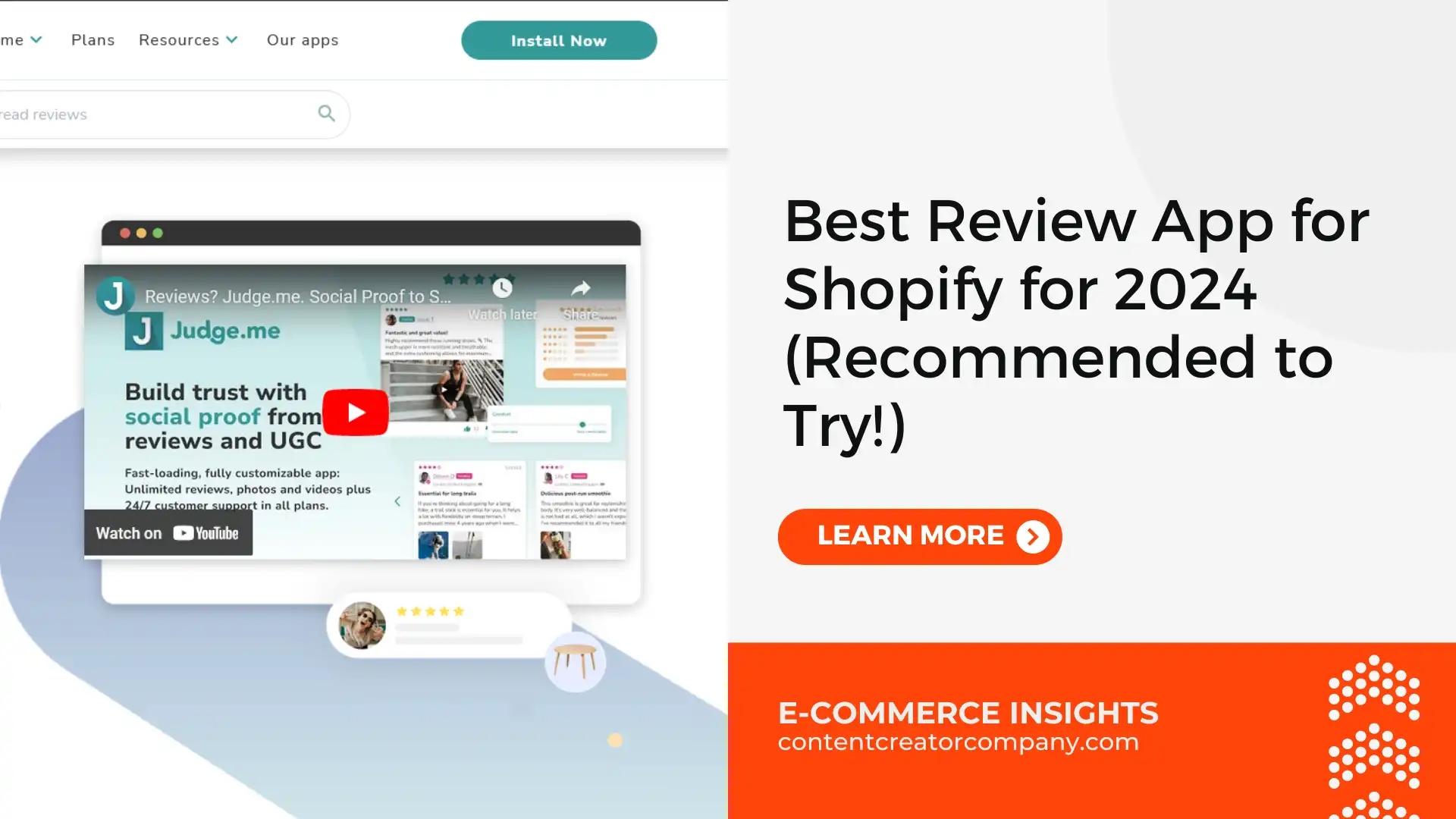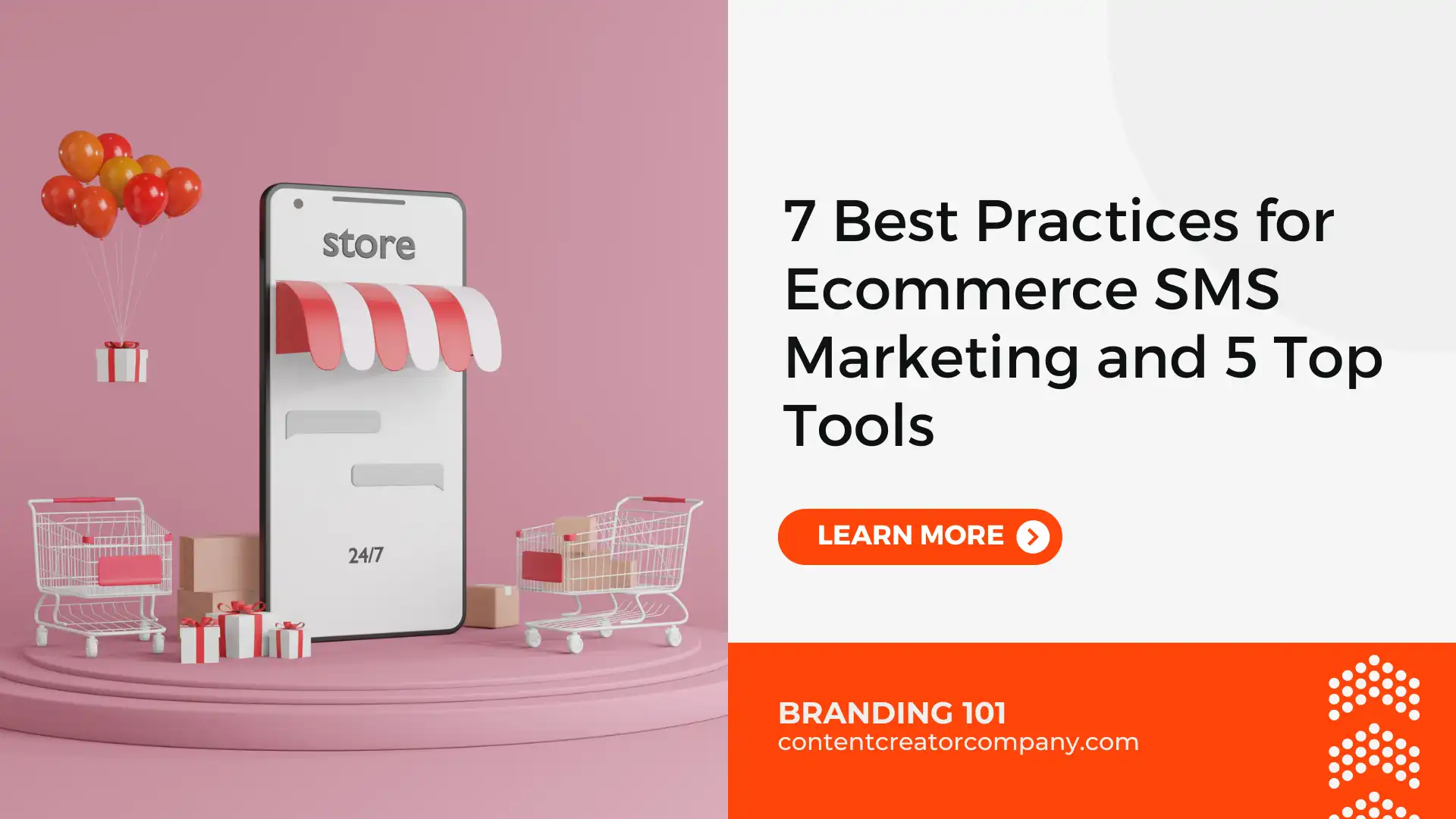
E-commerce is getting bigger and more challenging every day, simply having an online store is no longer enough to stand out. Consumers are bombarded with countless products, brands, and marketing messages daily, making it increasingly challenging for businesses to capture their attention and loyalty.
This is where a well-crafted content marketing strategy can be a game-changer. By consistently creating and distributing valuable, relevant, and engaging content, ecommerce sellers can attract and retain their target audience, build brand awareness and authority, and ultimately drive more traffic and sales to their online stores.
All e-commerce sellers need to understand the power of content marketing and implementing an effective strategy is crucial for long-term success in the ever-evolving digital marketplace. Today, we’re going to invite you to apply content marketing strategies for ecommerce success!
Table of Contents
What is Content Marketing?
Content marketing is a strategic approach to creating and distributing valuable, relevant, and consistent content to attract and retain a clearly defined audience. It’s about crafting content that resonates with your target customers, addresses their needs, and establishes your brand as a trusted authority in your industry.
In the ever-evolving world of ecommerce, content marketing has become an indispensable tool for businesses to stand out from the competition. With countless products and brands vying for consumers’ attention online, having a solid content strategy can help you:
- Increase brand awareness and visibility
- Educate and engage your target audience
- Build trust and establish yourself as an industry expert
- Drive more qualified traffic to your online store
- Improve search engine rankings and organic traffic
- Nurture leads and boost conversions
Setting Up Your Content Marketing Strategy
Define Your Goals
Before diving into content creation, clearly define your goals. Do you want to increase brand awareness, drive more traffic, generate leads, or boost sales? Having specific, measurable, attainable, relevant, and time-bound (SMART) goals will help you create a focused strategy and measure your success.
Know Your Audience
Understanding your target audience is crucial for creating content that resonates with them. Conduct market research, analyze customer data, and create buyer personas that represent your ideal customers. This will help you tailor your content to their interests, pain points, and preferences.
Identify Your Content Pillars
Content pillars are the overarching themes or topics that align with your business objectives and target audience. These pillars will serve as the foundation for your content strategy, ensuring consistency and relevance across all your marketing channels.
Content Types for Ecommerce Businesses
1. Product Descriptions and Guides
Well-crafted product descriptions and guides can be powerful selling tools. They not only provide detailed information about your products but also address common customer questions and concerns. Use persuasive language, highlight key features and benefits, and incorporate relevant keywords to improve search engine visibility.
2. Blogs and Articles
Blogs and articles are excellent ways to establish your brand as an authority in your industry. Share expert insights, tips, and advice related to your products or industry. This type of content can educate your audience, build trust, and keep them engaged with your brand.
3. Visuals (Photos, Videos, and Infographics)
In the visual age we live in, multimedia content is essential for capturing and retaining your audience’s attention. High-quality product photos and videos can showcase your offerings in an engaging way, while infographics can break down complex information into an easily digestible format.
4. User-Generated Content
Encouraging and leveraging user-generated content (UGC) can be a powerful asset for ecommerce businesses. Customer reviews, testimonials, and social media posts not only provide social proof and build trust but also create a sense of community around your brand.
Content Distribution and Promotion
Optimize for Search Engines (SEO)
Optimizing your content for search engines is crucial for driving organic traffic to your online store. Conduct keyword research, incorporate relevant keywords naturally into your content, optimize meta tags and descriptions, and build high-quality backlinks to improve your search engine rankings.
Leverage Social Media
Social media platforms can be powerful channels for distributing and promoting your content. Share your blog posts, product updates, and visuals on platforms where your target audience is active. Engage with your followers, participate in relevant conversations, and consider social media advertising to boost your reach.
Email Marketing
Building a robust email list is essential for effective email marketing. Offer incentives like discounts or exclusive content to encourage subscribers, and make it easy for customers to sign up during the checkout process or through opt-in forms on your website.
Once you have a solid email list, create engaging campaigns that provide value to your subscribers. Share your latest blog posts, product updates, special offers, and behind-the-scenes glimpses of your brand. Segment your list and personalize your emails for better engagement and conversion rates.
Measuring and Optimizing Your Content Strategy
To gauge the success of your content marketing efforts, track key metrics such as website traffic, bounce rates, time on page, social media engagement, lead generation, and conversion rates. Use tools like Google Analytics, social media analytics, and email marketing platforms to monitor these metrics.
Regularly analyze your content performance data to identify what’s working and what’s not. Use this information to refine your strategy, adjust your content types or formats, optimize for better performance, and continuously improve your content marketing efforts.
Content Marketing Strategies for Ecommerce Conclusion
A well-executed content marketing strategy can be a game-changer for ecommerce businesses. By consistently creating valuable, engaging content tailored to your target audience, you can build trust, establish authority, and ultimately drive more traffic and sales to your online store.
Remember, content marketing is an ongoing process that requires commitment, creativity, and a willingness to adapt and evolve based on data and audience feedback.
FAQs on Content Marketing Strategies for Ecommerce
1. How often should I publish new content?
The frequency of content publishing depends on your resources and goals. However, a general rule of thumb is to aim for consistency, whether it’s weekly, bi-weekly, or monthly. Maintaining a regular publishing schedule helps keep your audience engaged and your brand top-of-mind.
2. How do I come up with content ideas?
There are several ways to generate content ideas, including:
- Monitoring industry trends and news
- Analyzing customer questions and pain points
- Conducting keyword research
- Repurposing existing content in different formats
- Collaborating with influencers or industry experts
3. How long should my blog posts or articles be?
There’s no one-size-fits-all answer, but generally, longer, more in-depth content tends to perform better in terms of engagement and search engine rankings. Aim for at least 1000 words, but prioritize quality over quantity.
4. Should I outsource content creation or keep it in-house?
Both options have their pros and cons. Outsourcing content creation can save time and resources but may lack the in-depth knowledge and brand voice of in-house content creators. Many businesses strike a balance by handling core content in-house and outsourcing supplementary content.
5. How do I promote my content effectively?
Effective content promotion involves a multi-channel approach, including:
- Optimizing for search engines (SEO)
- Leveraging social media platforms
- Building an email marketing list
- Collaborating with influencers or industry partners
- Repurposing content across multiple formats and channels
6. How do I measure the success of my content marketing efforts?
Key metrics to track include website traffic, bounce rates, time on page, social media engagement, lead generation, and conversion rates. Use tools like Google Analytics, social media analytics, and email marketing platforms to monitor these metrics and make data-driven decisions.
7. How do I ensure my content is unique and valuable?
To create unique and valuable content, focus on:
- Addressing specific customer pain points or questions
- Sharing personal experiences or behind-the-scenes insights
- Conducting original research or analysis
- Incorporating multimedia elements like videos, infographics, or interactive content
8. How can I keep my content marketing strategy fresh and engaging?
Continuously analyze your content performance data and audience feedback to identify areas for improvement. Experiment with new content formats, collaborate with industry experts or influencers and stay up-to-date with the latest trends and best practices in content marketing.
Are You an eCommerce Seller Looking to Skyrocket Your Online Presence and Sales?
Our expert team specializes in crafting successful content marketing strategies tailored specifically for eCommerce businesses. With our proven track record of driving engagement and boosting conversions, we’ll help you stand out in the crowded digital marketplace.
By seamlessly integrating our content creation for social media services, we ensure your brand’s message resonates with your target audience across all platforms. Don’t let your competitors steal the spotlight – invest in our services today and watch your eCommerce business thrive!
Plus, with a $100 tip, you’re one step closer to unlocking the full potential of your online store. Reach out now to get started on your journey to eCommerce success!





